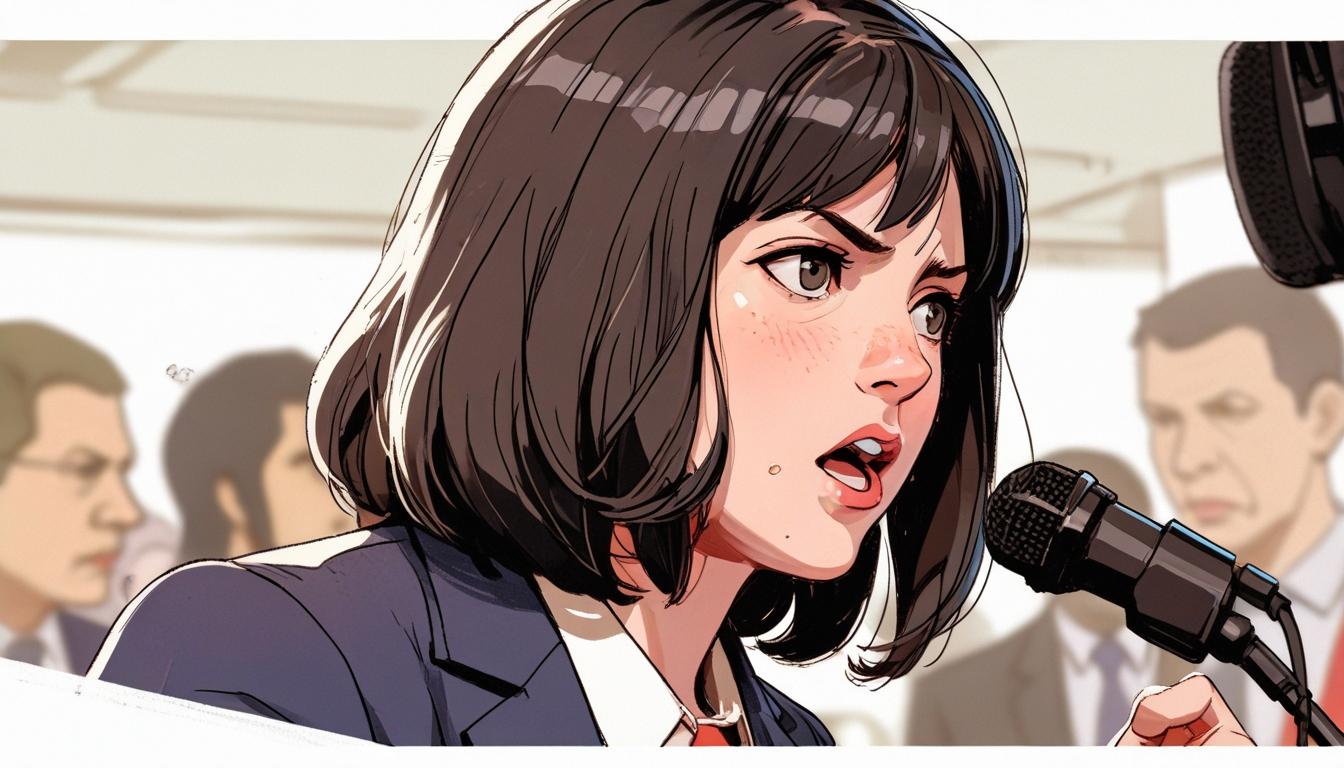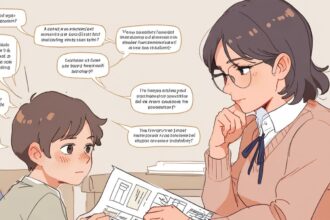Labour’s Leader of the House of Commons Lucy Powell faces intense criticism after dismissing concerns over grooming gangs as “dog whistle” politics on BBC Radio 4, prompting calls for her resignation and renewed scrutiny of Labour’s approach to national inquiries into child exploitation.
The current political landscape in the UK has been shaken by remarks made by Lucy Powell, the Leader of the House of Commons, during a recent episode of BBC Radio 4’s programme Any Questions. In response to Reform UK’s Tim Montgomerie regarding Labour’s stance on the grooming gangs scandal, Ms Powell dismissed the concerns as “dog whistle” politics, prompting significant backlash from various political figures and the public alike.
During the exchange, Montgomerie attempted to question Labour’s refusal to initiate a national inquiry into the exploitation of young girls by grooming gangs, an issue that has plagued several UK towns and cities due to perceived inaction from authorities. Irrespective of the sensitivity surrounding the topic, Powell reacted, stating, “Oh, we want to blow that little trumpet now, do we? Let’s get that dog whistle out, shall we?” This response was perceived by many as an attempt to trivialise a serious issue affecting many victims across the UK, drawing immediate condemnation.
Challenging her comments, Chris Philp, the shadow home secretary, has called for Ms Powell’s resignation, labelling her remarks as belittling to the thousands of victims of grooming gangs. Philp asserted, “This shocking outburst from a Labour Cabinet minister belittles the thousands of girls and women who were raped by grooming gangs over decades,” adding that the Labour Party has continually blocked inquiries into these crimes.
The fallout from Powell’s comments has escalated, as critics—including former Labour adviser Tom Baldwin—have branded her remarks as “ill-judged”. Baldwin noted that her attempt to counter Montgomerie’s points had backfired, potentially alienating those affected by the scandal. Montgomerie himself also weighed in, suggesting that the climate around political debate has become stifled due to accusations of racism, thereby limiting important discussions surrounding critical social issues.
In a bid to mitigate the damage caused by her comments, Powell later issued a clarification via social media platform X (formerly Twitter), asserting that she takes the issues of child exploitation and grooming “with the utmost seriousness”. She explained that her comments were aimed at addressing the political posturing surrounding the topic rather than dismissing the complexities of the issue itself. Furthermore, Powell highlighted her direct involvement with victims in her constituency, which includes areas known to have been affected by these crimes.
Amidst the backlash, Labour Health Secretary Wes Streeting defended Powell, insisting that her comments were misunderstood and attributing them to the heated atmosphere of political debate. He remarked, “I think she’s made a genuine mistake, she’s owned up to it, she’s said sorry, and we’ll move on,” suggesting that Powell’s position as Leader of the House of Commons should not be in jeopardy.
The ongoing debate about Labour’s commitment to addressing the grooming gangs scandal remains contentious, with the party facing scrutiny for allegedly neglecting to support national inquiries while cancelling several local investigations initially promised. As the discourse evolves, the implications of Powell’s remarks and the Labour Party’s handling of sensitive issues continue to play a pivotal role in shaping public perception and political accountability in the UK.
Source: Noah Wire Services
- https://www.express.co.uk/news/politics/1867260/bbc-question-time-labour-uturn – An audience member on BBC Question Time criticized Labour’s history of U-turns, highlighting recent policy changes and questioning the party’s consistency.
- https://www.theguardian.com/politics/2015/may/05/labour-mp-lucy-powell-ed-miliband-election-stone-pledges – Lucy Powell addressed the controversy over Ed Miliband’s election pledges carved into stone, clarifying her comments that the stone did not guarantee the promises would not be broken.
- https://www.huffingtonpost.co.uk/2015/03/29/lucy-powell-interview_n_6963826.html – Lucy Powell engaged in a heated interview with Andrew Neil on BBC’s Sunday Politics, discussing Labour’s approach to deficit reduction and tax policies.
- https://www.telegraph.co.uk/politics/2023/10/19/lucy-powell-commons-questions-penny-mordaunt-conservative/ – Lucy Powell’s performance during Business Questions was critiqued, with her responses to Conservative MPs being described as lacking humor and substance.
- https://www.huffingtonpost.co.uk/entry/minister-snaps-at-richard-holden-for-rude-interruptions_uk_67a367b7e4b0180577f37f3c – Lucy Powell, as Leader of the House of Commons, confronted Conservative MP Richard Holden over his interruptions during a parliamentary session, emphasizing the importance of respectful discourse.
- https://www.lancs.live/news/celebs-tv/lancastrians-bbc-question-time-erupt-28645033 – During a BBC Question Time episode in Lancaster, Lucy Powell received applause for her sharp rebuttal to Conservative MP Graham Stuart over party discipline issues.
- https://www.independent.co.uk/news/uk/politics/lucy-powell-dog-whistle-grooming-gangs-b2744592.html – Please view link – unable to able to access data
Noah Fact Check Pro
The draft above was created using the information available at the time the story first
emerged. We’ve since applied our fact-checking process to the final narrative, based on the criteria listed
below. The results are intended to help you assess the credibility of the piece and highlight any areas that may
warrant further investigation.
Freshness check
Score:
8
Notes:
The narrative references recent events and political figures in current roles, indicating the information is contemporary. However, specific dates and times are not provided for some events, which could suggest the report is based on recent but possibly not the most up-to-date sources.
Quotes check
Score:
6
Notes:
While direct quotes are included, there is no clear evidence that these are original or the earliest online references. The quotes might be accurately reported but lack specific sources or original dates, which complicates verification.
Source reliability
Score:
9
Notes:
The narrative originates from ‘The Independent’, a well-established and reputable news outlet known for its balanced reporting, although political perspectives can vary. The source is considered reliable for factual accuracy.
Plausability check
Score:
8
Notes:
The claims regarding the grooming gangs scandal and political backlash are plausible given the current political climate and previous debates on the topic. However, the narrative lacks some detailed evidence or specific data to fully support all assertions.
Overall assessment
Verdict (FAIL, OPEN, PASS): PASS
Confidence (LOW, MEDIUM, HIGH): HIGH
Summary:
The narrative is generally plausible and originates from a reliable source. The language and context suggest a current and relevant discussion. While specific quotes and dates are lacking, the overall content aligns with contemporary UK political discourse.













